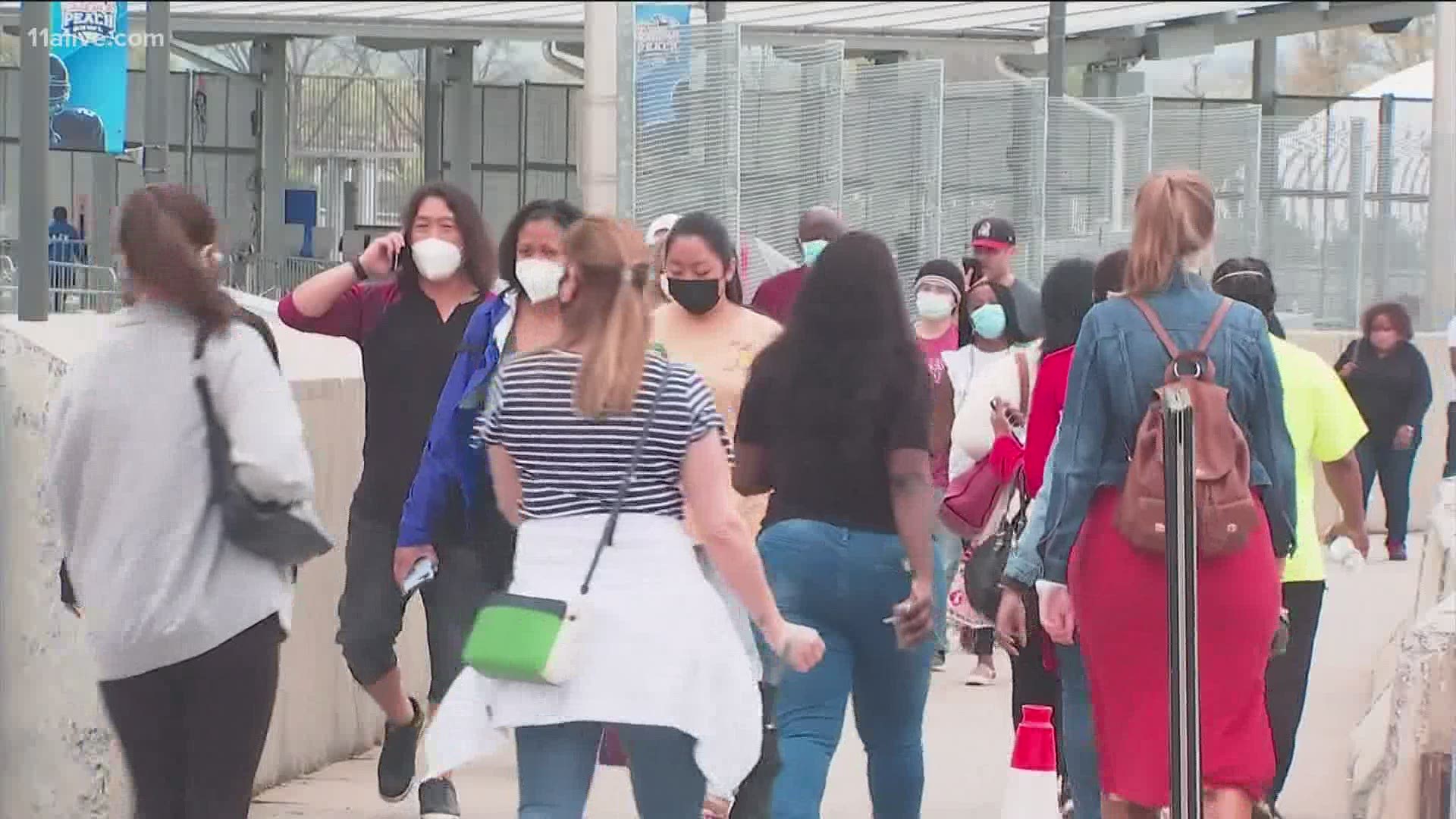ATLANTA — Now that Governor Brian Kemp has lifted nearly all of Georgia's COVID-19 restrictions, people are getting a glimpse of our "new normal". It turns out, that "new normal" will look different for everybody depending on who you ask.
If you ask dental hygienist Dianna Moon who has been vaccinated since December, she'll tell you things won't go back to how they were before the pandemic.
"I don't think anything will ever go back to normal just because I still today hear of someone every few days getting COVID," she said. "It's still there. People need to get vaccinated so we can get a lot closer to normal."
Then ask father of two Seth Schreiber, who hasn't gotten the vaccine yet but plans on it at some point. He'll tell you that it's important to go back to normal.
"What's the point of living if you're scared of dying? You might as well live life to the fullest at this point," he said. "We kind of know what to expect, we know what's out there, we might as well push on through and do the best we can."
CEO of Global Rescue, Daniel Richards, believes that "new normal" is just around the corner. His company provides risk crisis management services to clients around the world.
"What does the new normal look like when all of those who want to be vaccinated have been vaccinated? It means we can be inside together without masks, we can relax social distancing requirements, we can go to the movies, we can get on airplanes, we can do all kinds of things domestically that we weren't doing during the pandemic and that'll obviously be a very exciting time," Richards said. "I think we are weeks not months away from having the opportunity to do that."
He said that, by the end of May, everyone who wants to get the COVID-19 vaccine should be able to, getting us closer to that "new normal".
"They may still be within the post-second jab window and they'll need to be careful in that window but the data shows that after the first jab in most instances you have 80% plus immunity," he added.
Richards said it's not realistic to put a percentage on the population that needs to be vaccinated to reach herd immunity.
He said that scientists are already developing therapeutics to help manage COVID-19 instead of focusing on getting rid of it.
"There's a class of medicine being developed right now that prevents the enzymes in the virus from attaching to an infected victim's cell," he said. "What we have seen pretty far into clinical trials is that they have the ability -- if taken early -- to change the trajectory of the disease."
Richards explained that COVID-19 is an "endemic" disease, which becomes part of the "regular landscape".
"The likelihood that we eradicate COVID is not very high, at least not in the near term," he said. "That doesn't mean we can't drive it into the shadows so that there's only small corners of the world that people suffer from it."
Richards also said that, in the future, he expects pills to be the new form of vaccination as scientists work to develop new medicine to treat and cure COVID-19.
"It's like if you didn't actually have to go to a healthcare facility to get your vaccine, you just pop the pill in your mouth and swallow it and you get vaccinated," he said. "That would be a wonderful thing."
In the meantime, some Georgians remain hopeful and optimistic, while others believe it's important to be more realistic.
"We need to be washing our hands - we should've been doing that in the first place - wearing our masks if we're in crowds, but if you're vaccinated I honestly don't think we need to have the masks as much," said Moon.
"Life is not life without risks so as long as you're able to push through and understand that there's risks out there for the virus, that's all you can do," said Schreiber.

